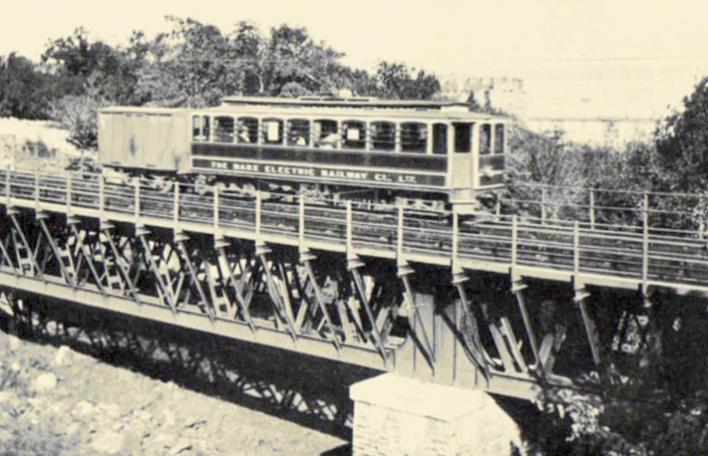The Manx parliament has voted in favour of the £1,285,000 plan to make the necessary permanent repairs to Ballure Bridge. The vote secures the future of the northern section of the MER, and a scheme to 'mothball' the line north of Laxey need not now happen. The vote will be a relief to the businesses and people of Ramsey.
All rail carrying timbers will be replaced and new rails and safety guard rails will be installed. The track between the bridge and the main Laxey Road crossing will also be renewed as part of the scheme.
Works should commence soon after the MER season ends next week.
The 52-metre long bridge towers up to 16 metres above Ballure Glen. It was built between 1897 and 1899 and the riveted metal fabrication bridge was last repainted in 1981. Following an inspection in 2010, parts were found to be carrying up to 90% of their safe load during the passage of a standard MER tram. A number of timbers that support the rails on top of metal girders were renewed in 2011 and others in 2013 on safety grounds.
The 2010 inspection identified the necessary structural repairs that the department hopes can now be undertaken this winter. These will involve scaffolding the whole structure and some crane working to enable a number of severely corroded metal sections to be replaced along with 300 currently ineffective rivets. Timber-supporting steel beams will be upgraded or replaced and the whole structure re-painted with high integrity marine-standard coating after removal of the old paint.
Last week MERS Secretary Julian Nutter appeared on Manx Radio and outlined the economic importance of the MER to the Island's second largest town. "The MER is vital to the town of Ramsey, and is vital to the people who are trying to do small businesses there. It brings in tourists. People get on that tram in Douglas, and get off it with their tourist pound in Ramsey, and spend it in the shops."
"This has all happened before. Back in 1975 there was a proposal that was upheld to close the line to Ramsey.
"The consequences to the town were immense."
